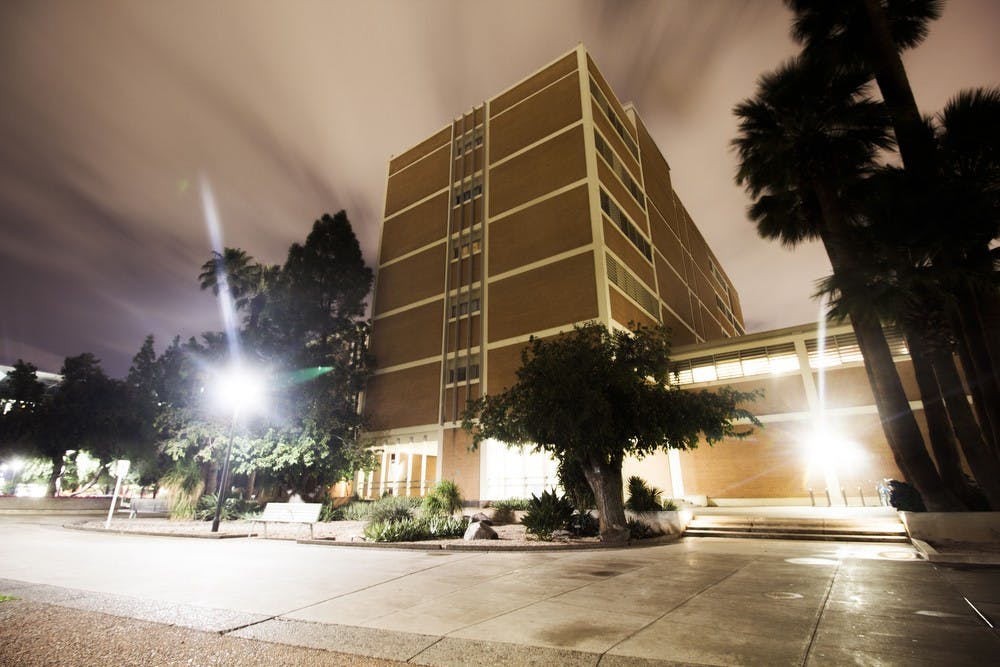A controversial English course previously offered at ASU is back for spring 2016, and the professor teaching the class is ready to kick off the new semester.
ENG 401: Whiteness and the U.S. Race Theory, previously known as "The Problem of Whiteness," caused national controversy last spring when the University first offered the course.
Associate Professor Lee Bebout will teach the course for the second time and said the class, despite the connotation of its former name, looks to discuss race culture as a whole.
"The class is really kind of my wheelhouse of research," he said.
Bebout, who focuses his research on Chicano studies and critical whiteness studies, said critical whiteness is a field that does not have a lot of scholars working to broaden its scope, but he hopes his students will offer a new insight for the topics presented.
"One of the things I look forward to is being able to share the scholarship with students, but also being able to get their insight on the field and see where they're coming from in relation to the field," he said. "I kinda look at the classroom as an open laboratory where we test out ideas and explore things with each other."
Race culture is not simply about black and white, Bebout said. Instead, it is a complex topic that will be explored from many different angles in the course.
"(The idea is) that race itself is socially constructed, which is kind of like an older idea, but every community, particularly within the United States, gets racialized," he said. "We often talk about people of color but we ignore how white folks experience (and) see race, or sometimes don't see race, or talk about how white folks talk about race or don't talk about race."
The name of the course, once ENG 401: The Problem of Whiteness and U.S. Race Theory last spring, has been altered after controversy spread following reports from national news organizations began.
Bebout said the new title is not one he prefers, but he hopes to work with the University to find a title that "speaks to the content" of the course.
"The title of the course and the title of the books fit into a preexisting narrative that college professors are trying to inappropriately influence students and that white people are under attack," he said. "Simply put, the journalists who initially brought this to national attention seem to merely have been looking for things that would confirm their preexisting beliefs."
Soon after the course was announced last spring critics of the course said the course had "anti-white" themes.
In a statement, the University said academic environments are meant to hold discussions and debate a wide array of viewpoints and the course is designed for students to offer their insight on race culture.
"Race continues to be a critical topic in communities around the country and is clearly worthy of study on a campus charged with preparing students to play a role in shaping the future," the statement read. "This course encourages students to examine how people talk about -- or avoid talking about -- race, and it is designed to empower students to confront difficult and often thorny issues and reach thoughtful conclusions.
Journalism senior Lauren Clark, the campus correspondent for CampusReform.com, has been one of the most vocal opponents about the course and spoke with Fox and Friends in January to reference the course's the books as a major issue.
“All of these books have a disturbing trend, and that’s pointing to all white people as the root cause of social injustices for this country,” Clark said in an earlier interview with Fox and Friends. “So, clearly, we're seeing a course here that causes more problems than solutions.”
Only some of the readings four out of six books -- will be returning in this semester's course. Bebout said a new reading on the list will be Ta-Nehisi Coates' "Between The World and Me," a biography that talks about what it is like to grow up as a black youth in Baltimore, Maryland.
Exercise and Wellness Junior Ashley Bratek said she would be open to taking the course and is looking forward to hearing feedback from other students in the class.
Bebout said for this upcoming semester, he hopes his students will connect with each other through the discussions brought up in class and provide thoughtful insight on many of the topics.
"I'm looking forward to meeting students and getting to know them and seeing why they are coming to class," he said. "But I'm really looking forward to spring break."
Related Links:
ASU associate leads 'Problem of Whiteness 101' teach-in on Tempe campus
'The Problem of Whiteness' professor speaks out about criticism
Reach the reporter at Jlsuerth@asu.edu or follow @SuerthJessica on Twitter.
Like The State Press on Facebook and follow @statepress on Twitter.




